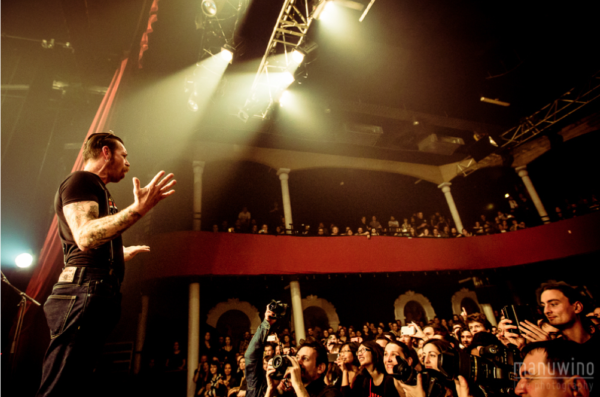The role of teaching critical thinking in the days of post-truth
What are the pillars of modern democracy and how can democracy be defended in days of crisis?
These questions keep coming to me these days, when Poland faces a really serious crisis that so far has caused a huge polarization in Polish society that divides neighbors, colleagues, friends, even families.
Being an educator for almost 30 years, teaching first young students, then teenagers and finally teachers about history, civil rights and human rights, I have realized what a huge setback the Polish educational system has suffered.
The Place of the Witness: From the Holocaust to the November 13th Attacks in Paris
A public lecture by Christian Delage (Director of the Institut D’Histoire Du Temps Présent, Paris)

Mobility, Survival and Integration: Experiences and Narratives of Holocaust Survivors in Latin America
A public lecture by the 2017-2018 Research Week team
Lorena Ávila (Centro Internacional de Toledo para la Paz, Colombia)
Daniela Gleizer (Universidad Nacional Autónoma de México, México)
Emmanuel Kahan (Universidad Nacional de La Plata, Argentina)
Nancy Nichols (Pontificia Universidad Católica de Chile, Chile)
Yael Siman (Universidad Iberoamericana, México)
Susana Sosenski (Universidad Nacional Autónoma de México, México)
Alejandra Morales Stekel (Director, Interactive Jewish Museum of Chile, Chile)
Junior Interns Respond to Hungarian Prime Minister’s Praise of Hungary's Antisemitic Leader During WWII
He was under five years old at the time, but World War II left an indelible mark on Louis Schmidt. He’s never forgotten the air raid drills, seeing his uncles in military uniform, or looking at pictures of prisoners of war in Life magazine.
So when Steven Spielberg announced after he won the Oscar for Schindler’s List in 1994 that he was setting up a foundation to record interviews with 50,000 Holocaust survivors, Schmidt didn’t hesitate.